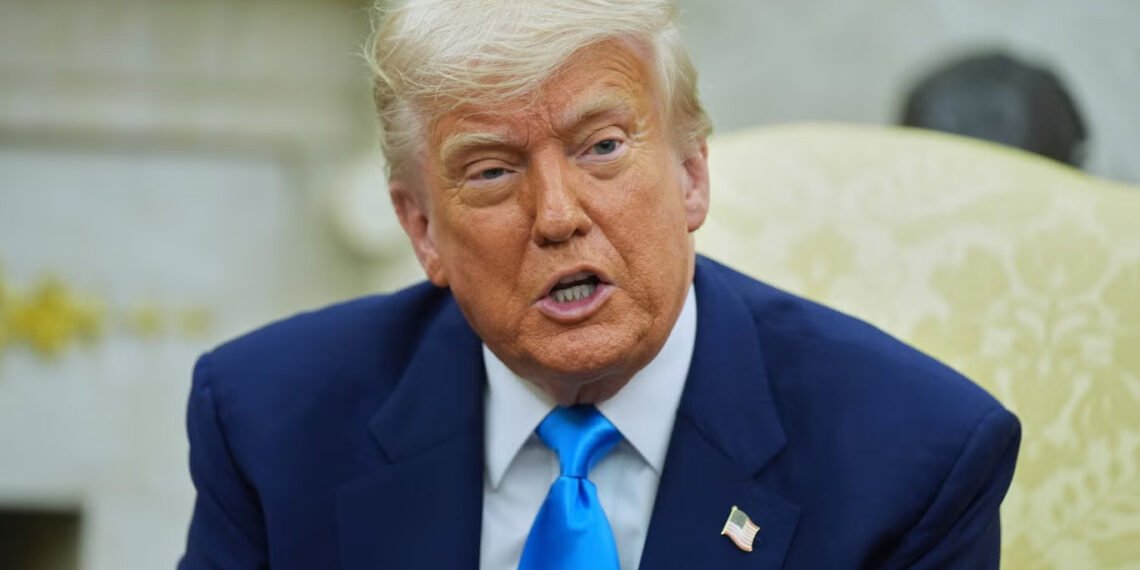Tensions have resurfaced between the United States and the United Kingdom, as President Donald Trump launched a pointed critique of UK Prime Minister Keir Starmer’s environmental strategy.
Despite the two nations recently celebrating a strengthened ‘special relationship’ through a highly praised trade agreement, Trump’s latest remarks have cast a shadow over their diplomatic harmony.
Using his Truth Social platform, Trump lambasted Starmer’s flagship net zero policy, warning that wind power was both “costly and unsightly”. He urged the UK to instead “incentivize modernized drilling in the North Sea, where large amounts of oil lay waiting to be taken.”
“Our negotiated deal with the United Kingdom is working out well for all. I strongly recommend to them, however, that in order to get their Energy Costs down, they stop with the costly and unsightly windmills.”
President Donald Trump
He went on to add that the North Sea held a “century of drilling left, with Aberdeen as the hub.”
The President, who has long opposed wind energy and owns a golf course in Aberdeenshire, has a storied history with the UK’s renewable energy ambitions. His opposition peaked during a lengthy legal battle over a proposed 11-turbine wind farm off the Aberdeenshire coast, which he claimed would ruin the view from his Balmedie golf course.
In 2019, his company was ordered to pay nearly £250,000 in legal fees to the Scottish government after losing the case.
Trump’s latest criticism extended to Britain’s “old-fashioned tax system”, which he described as a barrier to energy investment. He claimed that if the UK restructured its taxation to favor drilling, “Energy Costs would go WAY DOWN, and fast!”
The President has previously expressed disdain for wind turbines, once stating they “destroy everybody’s property values, kill all the birds.” He also questioned their reliability with a bizarre anecdote.
“Then, all of a sudden, it stops; the wind and the televisions go off. And your wives and husbands say, ‘Darling, I want to watch Donald Trump on television tonight. But the wind stopped blowing and I can’t watch. There’s no electricity in the house, darling.’”
President Donald Trump
Starmer’s Labour government has pledged to phase out North Sea oil and gas production, focusing instead on expanding renewable energy sources like wind and solar. However, this transition has raised fears among energy workers in Aberdeen. A recent commission hearing revealed that many fear a looming “cliff edge” in job security as the country pivots away from fossil fuels.

Trade Relations Strained Despite Earlier Gains
This clash comes mere weeks after the UK and US finalized a new trade pact that had been hailed as a major diplomatic success. Trump’s blunt remarks, however, have stirred concerns that deeper ideological rifts between the two administrations could threaten that progress.
Downing Street, meanwhile, has remained firm on its energy agenda. Earlier this month, the government rejected former Prime Minister Sir Tony Blair’s assertion that “hysteria” had overtaken climate change policy debates. In a report published by the Tony Blair Institute, Blair criticized what he described as unrealistic global goals to reduce fossil fuel use, stating that the current approach “isn’t working.”
Opposition parties have interpreted Blair’s comments as an implicit rebuke of Labour’s net zero strategy, placing additional pressure on Starmer to defend his climate policies from both international allies and domestic critics.
Coinciding with Trump’s latest intervention, energy regulator Ofgem confirmed that household energy bills in the UK would drop by around 7 percent from July. The change, spurred in part by President Trump’s aggressive oil tariff policy, which has contributed to falling global energy prices, will reduce the average annual bill by £129, bringing it to £1,720.
The relief comes after what many consumers described as an “awful April”, when households were hit by a 6.4 percent increase under Ofgem’s previous price cap.
Despite diplomatic courtesies and recent trade wins, President Trump’s remarks reflect a growing policy divergence between Washington and London. As debates over energy, climate, and economic priorities intensify, the durability of the transatlantic alliance may soon face its toughest test yet.
READ ALSO: PNP Slams Gov’t Over NHIS ‘Cash-And-Carry’ System



















